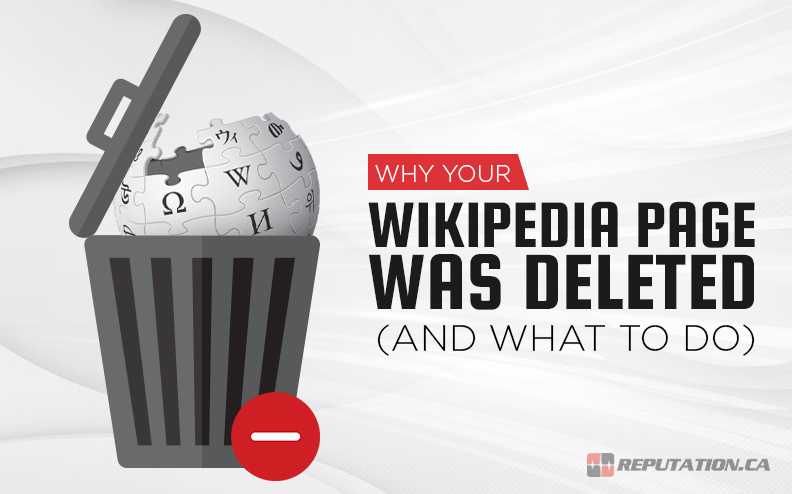Wikipedia is a universal source of information online; it is a platform that provides users with knowledge and guidance across all domains worldwide. Anyone from anywhere in the world can edit these articles, so it is hard to find refined articles. Wikipedia, even though it is easy to access and has a wide range of articles, also follows strict policies and content guidelines, which leads to multiple articles being deleted.
The administrators oversee this deletion process and follow a structured review system that allows editors to decide whether a particular page or article should be removed or not. Properly understanding why Wikipedia removes articles will allow you to meet the required standards.
MAJOR REASONS WHY YOUR PAGE GOT DELETED BY WIKIPEDIA
Lack of Notability
Wikipedia, as a free encyclopedia, has strict rules that must be adhered to. One of the major reasons why articles on Wikipedia get deleted is the lack of notability. Lack of notability means these articles do not meet Wikipedia’s criteria. There are strict guidelines for determining whether a certain topic is significant enough to deserve an article or not. The notability of any topic depends on whether it has independent, reliable sources such as newspapers, books, or academic journals. If a subject does not have sufficient coverage from a reliable source or is just passing through, the page will be flagged for deletion. For instance, a company that posts a blog or article on Wikipedia about its company websites or self-featured books, with limited mention of notable news articles or academic journals, will be flagged by Wikipedia and removed.
Copyright Violations & Plagiarism
Copyright is the most obvious reason for an article being taken down, and so is plagiarism. Wikipedia has strict policies regarding these violations, such as copying and pasting text from books, journals, or websites, which are grounds for immediate article deletion. Copying someone’s ideas and using them without giving credit is another form of copyright infringement that can lead to your content being flagged.
Wikipedia encourages original, authentic written content and strictly prohibits the copying of content. Plagiarism is another serious issue. Contributors copy text and information from other sources and present them as their own, leading to pages being flagged for deletion. To prevent this, writers should properly cite information they have utilised from other sources and provide relevant references. However, inauthenticity aside, misinformation is also a significant issue with articles uploaded to Wikipedia. It should go without saying that sharing false information will come back to bite you, as the platform’s editors will remove the content and ban you.
Suppose you are looking to post your article on Wikipedia, and someone has already posted it, leading to that article being taken down. Don’t worry; you can always reach out online to Wikipedia page creation company, which will provide you with professional services and help you post a unique and original Wikipedia article that stays live and will not be taken down.
Promotional Or Biased Content
Wikipedia is an encyclopedia, not a promotional or self-advertising platform. Pages written in a promotional tone or containing articles from press releases are flagged for violating Wikipedia’s neutrality policies. Profiles that individuals, businesses, or start-ups create to promote and exaggerate their service achievements or indulge in self-praise rather than posting any neutral information are immediately removed.
Wikipedia requires you to have a natural point of view (NPOV), meaning that all content must be unbiased and presented in a balanced manner. For example, if an article is written using a self-promotional technique rather than an objective autobiography or individual profile, it will not last long on Wikipedia.
Failure To Meet The Structural Guidelines
Wikipedia articles are made with a proper structure for the platform. This specific format and style, followed carefully by a Wikipedia page editor, ensure readability and consistency across the article, increasing the likelihood that a reader will stay online and complete their reading. Pages that fail to meet these guidelines are deleted, especially if they have poor structure or are written poorly. That being said, a Wikipedia page editor understands that Wikipedia has different structures for different kinds of pages, but it is necessary to follow the Wikipedia manual of style.
Violation of Content Policies
Wikipedia has implemented multiple policies to ensure that the content remains neutral, authentic, and encyclopedic. Articles that violate the core policies, such as neutrality, verifiability, and unoriginal research, are subject to deletion. Content that contains biased viewpoints, conspiracy theories, personal opinions, or unproven claims is also removed. Wikipedia does not accept content based on personal analysis or theoretical arguments. Instead, the content must be from a credible or published source. Moreover, pages that are excessively detailed or contain irrelevant content will be flagged. Ensuring that content complies with Wikipedia’s guidelines will help maintain the integrity of your article.
Non-Encyclopaedic Content
Wikipedia is designed to be an online encyclopedia that contains only accurate, well-supported, and relevant information for its audience. Pages and articles that contain irrelevant content or non-encyclopedic content, such as personal essays, opinion pieces, or false information, are deleted. For example, a page containing content about a fictional character and how it affects people’s lives when, in reality, it is nothing more than a figment of imagination, will be flagged by Wikipedia and removed.
FINAL THOUGHTS ON THE DELETION PROCESS OF WIKIPEDIA ARTICLES
This process is designed to maintain the authenticity, integrity, reliability, and quality of this vast encyclopedia, which is read by millions worldwide. Pages are deleted for various reasons, including lack of notability, copyright violations, promotional content, poor structural formatting, failure to meet content guidelines, and non-encyclopedic materials. Writing and creating a Wikipedia page is easy in theory, but it most commonly leads to deletion, even if you do things perfectly. To ensure that your written pages do not vanish from Wikipedia, you must adhere to all policies and regulations set by Wikipedia.










